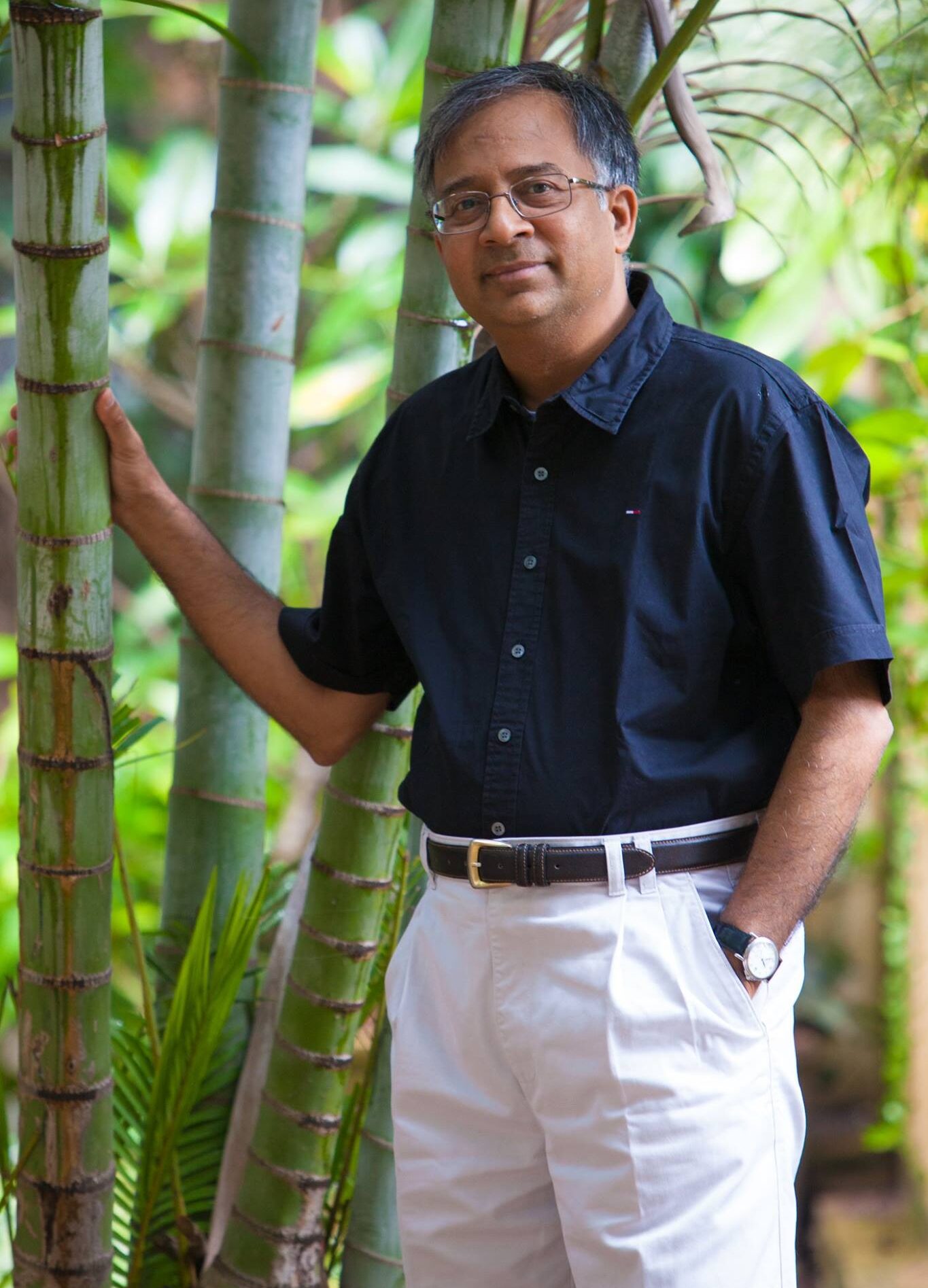“Corporate building for NGOs is important;capacity building for corporates is important.”
Aroon Raman shares with Marie Banu the need for synergy between corporates and NGOs

Aroon Raman is an Indian entrepreneur and author. Raman did his Masters in Economics from Jawaharlal Nehru University, Delhi and then pursued his MBA from Wharton School, University of Pennsylvania. He is married with two children.
Raman currently owns a Research and Development company and till date, he has written two two thrillers – The Shadow Throne and a Mughal period adventure called The Treasure of Kafur. Both books were published by Pan Macmillan and have become the national bestsellers.
In 1991, he set up “Raman Boards”, a company involved in electrical materials, which was later bought by the ABB Group in 2007. He then started his Research and Development Company named “Raman FibreScience” in 2008 which has been acquired by a U.S.company in November 2014. The company specialises in wet-laid composites and offers end-to-end solutions to research and innovation problems. His company is also well known for developing talent at the grassroots level.
In 2010, he was elected Chairman of the CII Karnataka State Council for a period of one year. He is the Convener-CII CSR Panel.
In an exclusive interview, he shares with Marie Banu the need for synergy between corporates and NGOs.
What inspires you to write books?
I was a reader since very young age and enjoyed reading Conan Doyle, Rider Haggard, thrillers and boys adventure stories. I grew up on that diet of fiction and then got into non-fiction. I always had been good in English at school, but went on to study Social Sciences, business, and so on. But, I kept up with my reading habits. When I decided to sell my first company, writing just came back in full force.
I sat down and wrote my first book ‘The Shadow Throne’ which was published by Pan Macmillan. That did well and I launched into my second book ‘The Treasure of Kafur’ which is on a Mughal adventure. Now, am writing my third book called ‘Skyfire’. The first book that I wrote was on a nuclear kind of Armageddon scenario. The third book is a sequel to the first with the same characters, but here the plot revolves around artificial weather manipulation. It is an interesting theme and not many people might be aware that there was a UN Environment Modification Convention (ENMOD) 20 years ago where various countries got together and said that we will not manipulate the weather or environment for military purposes. So, the militarisation of weather has been a kind of a hidden agenda in various military technologies for some time. So, this book is a take on that and has some basis in scientific effect
Your interest in the social sector?
I sold my first company in 2007; started another R&D company which I sold in end 2014. Ever since then, it has been my intent to engage in the social sector more strongly. I had also been part of CII for a long time in various capacities and thought I would take up the convenorship of CII-CSR panel which comes focused specifically on disability.
I must say that disability has been a challenge. Corporates do engage to some extent; of course, some are much more engaged than others mainly in the area of inclusion at workplace. Among the manufacturing companies, I find this to be still nascent.
In CII, while we did the conference titled ‘Engage Ability’, I have since found it to be uphill going. There is a lot more that needs to be done to energise the corporate world and particularly after our tie up with Disability NGO Alliance (DNA), I must say that I have not been able to do a lot. I have certainly not given up, but it is clear that we need to achieve a lot more on the ground before we can say that we can make some progress.
How can we sensitise corporates on inclusion?
This is vital. One of the things I am hoping that we will take up to in future is—better understanding of corporate CSR and what needs to be done and how to make CII more relevant. For example, DNA has a couple of good programmers which they would like to take up. Eight out of ten corporates would have chosen schools as their CSR agenda which are aimed at mainstreamed children. The moment we start looking at disabled children in every school, the intervention becomes complex. It has been more of a struggle to get the corporates involved in disability programmes because the investment per child seems to be much higher. It could be due to that or other reasons. One of our tasks to look into the corporate views in such matters. There is a huge amount of learning to be done!
How to enable synergy between the CSR and NGO programmes?
NGO capacity building is crucial and well understood. Apart from us, NGOs themselves are aware and are trying to expose themselves as much as they can. But, corporates also need as much inputs, particularly the mid-sized ones and others. Corporate building for NGOs is important; capacity building for corporates is important. Each side has to understand the other better. They have their own strength and weaknesses, and deeper involvement is probably required to bridge this gap better. Otherwise, right now there is a lot of cheque book related involvement which may not be the best way forward. That is one of the challenges going forward which we need to try to pitch.